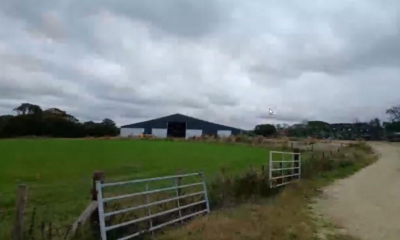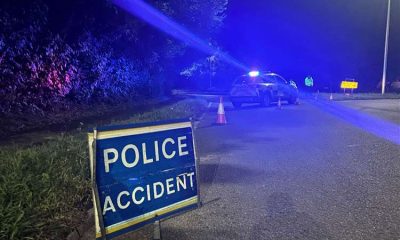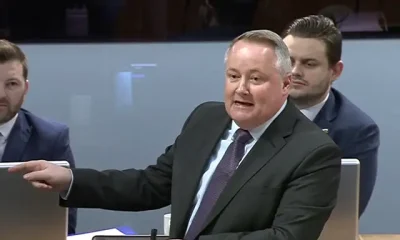Politics
Council prepares for elections
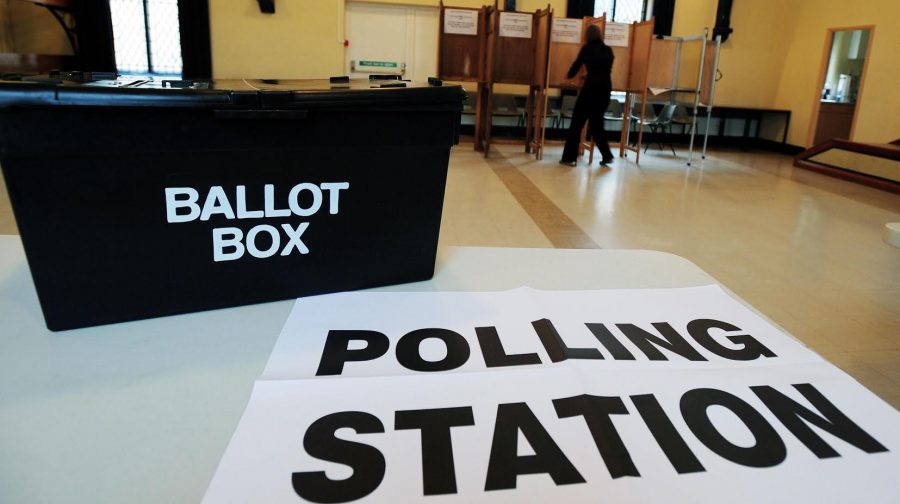
THAT’s it as far as County Council politics go for now.
The Notice of Poll for May 5’s County Councils publishes tomorrow (Friday, March 18) and nominations open for the next County Council term on Monday (March 21).
Those nominations close on Tuesday, April 5.
That’s not a lot of time to get your act together if the elections have come as a horrible surprise, but plenty if you’ve prepared yourself to stand as a candidate.
If not, you need the nominations of ten electors resident in the Ward for which you seek election. However, while the Council goes into pre-election purdah, The Herald does not.
I WANT TO BE ELECTED?
It’s not only Pembrokeshire County Councillors who will be elected on May 5.
On the same day, Pembrokeshire elects its town and community councils.
Pembrokeshire has ten town councils and sixty-seven community councils.
Town and Community Councils serve their community by exercising a range of statutory powers and duties with the aim of improving the quality of life in their locality.
Each council is made up of elected members. However, in many cases, councillors are returned unopposed or are co-opted. For example, only two of the current Haverfordwest Town councillors were elected in 2017, the remainder were co-opted to fill vacancies during the council term.
Whether that’s healthy for democracy or not is a separate debate; but Pembrokeshire leads the way in the proportion of county councillors who did not face the electorate in 2017.
Twelve of sixty county councillors were returned unopposed.
Community and Town councils are responsible to their local electorates for delivering a wide range of services and for the provision and upkeep of local amenities.
County Councillors have a duty to serve their communities and work with Council officers to provide services to the public. Most County Councillors are also Town or Community Councillors
County Councillors meet together regularly as The Council, where they decide overall policy and set the organisation’s budget for the year.
County Councillors might be nominated by fellow councillors to sit on certain committees, for example, the Planning Committee or one of the Council’s scrutiny committees.
The Council Leader is elected by Councillors at the beginning of the Council term and the Leader selects the Cabinet.
PEMBROKESHIRE’S STRANGE POLITICS
Pembrokeshire is unusual in Wales because it returns relatively few councillors who stand for political parties.
Out of sixty councillors at the last election, the Conservatives returned twelve councillors (now eleven following a by-election) Labour returned seven, the Liberal Democrats one, and Plaid Cymru six.
The remainder of the councillors all stood as Independents.
There are, however “Independents” and “Real Independents”.
The Independent Political Group, led by Jamie Adams, ran Pembrokeshire as a one-party state until 2017, when its vote collapsed.
The IPG’s current membership is twelve, although its membership is fluid and some members inch towards more traditional party colours.
The 2022 elections will be the first under new boundaries.
STANDING DOWN
Several councillors are not seeking re-election: those include Sam Kurtz MS, whose Scleddau Ward disappears. Cllr Kurtz could have resigned his seat on election to the Senedd but chose to remain to avoid the costs of a by-election.
He’s donated his councillor’s allowance to local projects. Cllr Josh Beynon steps down, as does veteran Johnston councillor Ken Rowlands. Cllr Rod Bowen steps down from Clydau.
Cabinet member Cllr Phil Baker announced he would step down in May and there are rumours that several other prominent councillors from around the county will not seek re-election, including at least two other members of the IPG.
The changing boundaries will almost certainly affect the council’s make-up. The important question for any candidate standing as an independent is whether they will remain independent or join the Independent Political Group – or any other party grouping.
TURNOUT THE VOTE
In addition, the turnout in local elections is so low that a prospective candidate might only need to rally a handful of extra votes to see off a split field. That was the case in Pembroke Dock Central and Milford Central last time out, where the margins of victory for Cllrs Paul Dowson and Stephen Joseph were tiny. Those margins were not, however, as tiny, however, as the two votes that saw Cllr Tony Baron returned as member for the now abolished Amroth Ward.
In General Elections to Westminster, there are often safe seats in which any opposition effort is token.
Generally, that’s not the case in Council elections – although standing against Cllr Tony Wilcox in Pennar can be a sobering experience for his opponents.
Votes cast in the tens rather than the hundreds or thousands make a genuine difference to election outcomes.
Our prediction for the next Council is that Labour will perhaps gain the odd seat, the Conservatives will lose the odd seat, the Liberal Democrats might gain a seat, Plaid Cymru could gain a couple of seats in the north and east of Pembrokeshire, the IPG might lose ground due to established members’ decisions not to seek re-election. The majority of members will be “Real Independents”, or as Cllr Mike Stoddart calls them “Dictionary Independents”.
Beyond that, Cllr David Simpson is likely to remain leader with some changes to his Cabinet (one enforced) for the first part of the new administration’s term.
Replacing Cllr Simpson will be a tricky job: Jamie Adams will want it but might struggle for cross-party support; an openly political leader from a party group is unlikely to succeed in forming a coalition for the same reason.
All of which might explain why Cllr Adams is keen to find someone to stand against current Cabinet Members, particularly the Cabinet Member for Transformation, Cllr Neil Prior.
Community
Wolfscastle farm’s new shed sparked ‘noise nuisance’ claims
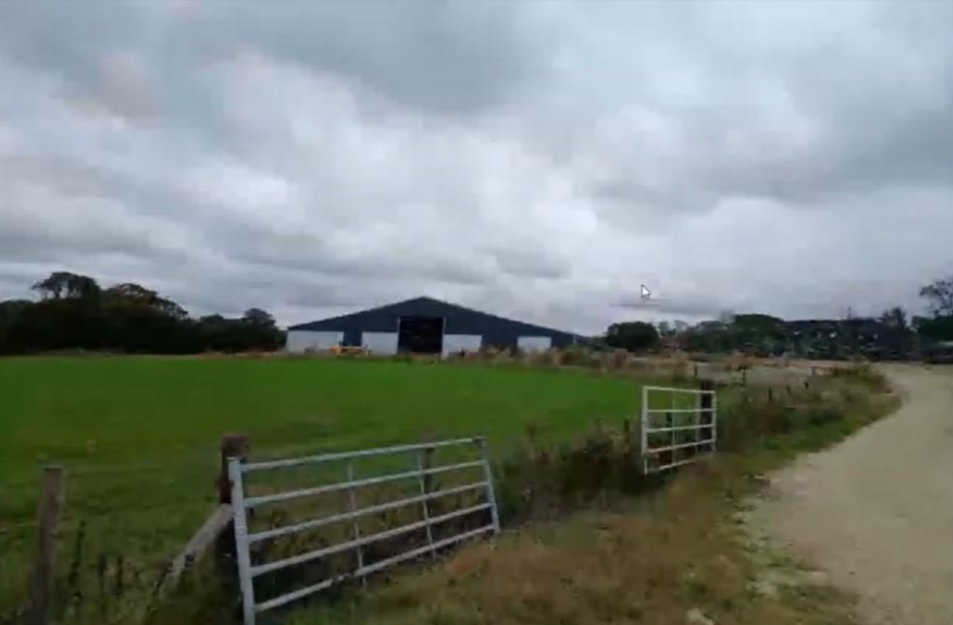
A PEMBROKESHIRE farmer “jumped the gun” in his enthusiasm to build a new cattle shed which includes ‘robot slurry scrapers’ that have been causing a noise nuisance for neighbours, county planners heard.
In a retrospective application recommended for approval at the December meeting of Pembrokeshire County Council’s planning committee, Aled Jenkins sought permission for a replacement cattle housing and silage clamp at Upper Ty Rhos, Wolfscastle.
An officer report said Upper Ty Rhos consists of a herd of 630 youngstock beef cattle, the applicant seeking permission for the replacement 100-metre-long cattle housing building.
It said the building benefits from a robotic scraping system to internally clean it to improve animal welfare and efficiency.
However, the slurry scraper system in operation has been found to constitute a statutory noise nuisance.
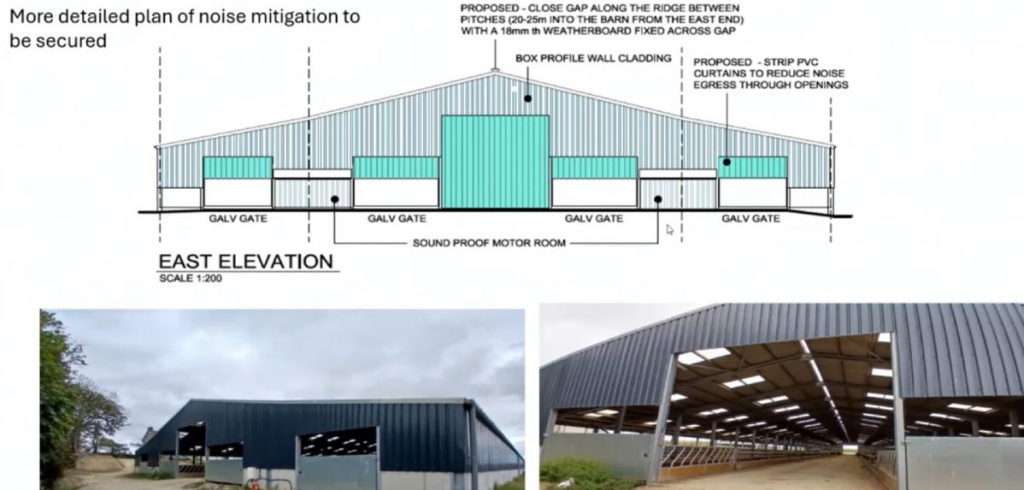
“The introduction of the slurry scraper system has resulted in a new noise source to the locality that is having a significant detrimental impact upon local amenity. The nuisance noise is directly associated with the extended hours of operation of the slurry scraper system and the noise created by the two motors powering the system including the drive mechanism that moves the scraper through the building to remove slurry produced by the housed cattle.
“To further exacerbate the situation, the building has open voids to the eastern gable end, which is within close proximity to the neighbouring property resulting in the building being acoustically weak.
“An acoustic report has been submitted with mitigation methods provided including relocating motors and associated equipment into external enclosures, reduction of noise egress through openings by installing hit-and-miss louvres and/or PVC strip curtains and consideration of blocking the gap between roof pitches along the ridge of the building.”
Three letters of concern were received from members of the public raising concerns including visual and environmental impact, noise issues and a potential for the herd size to increase.
Speaking at the meeting, neighbour Dr Andrew Williams, who stressed he was not seeking to have the shed removed, raised concerns about the noise from the ‘robot scrapers,’ exacerbated by cattle being concentrated in the immediate area from the wider farm complex.
Agent Wyn Harries addressed concerns about the retrospective nature was a result of over-enthusiasm by his client who “jumped the gun”.
He said there was now a scheme that was “fully worked through,” dealing with noise and other issues.
Members backed approval, which includes noise mitigation to address the impact of the robot scrapers; one member, Cllr Tony Wilcox, abstaining on the grounds of the retrospective native of the building “the size of a football field”.
News
Greyhound Bill faces fresh scrutiny as second committee raises “serious concerns”

THE PROHIBITION of Greyhound Racing (Wales) Bill has been heavily criticised for a second time in 24 hours after the Senedd’s Legislation, Justice and Constitution (LJC) Committee published a highly critical Stage 1 report yesterday.
The cross-party committee said the Welsh Government’s handling of the legislation had “in several respects, fallen short of the standard of good legislative practice that we would normally expect”.
Key concerns highlighted by the LJC Committee include:
- Introducing the Bill before all relevant impact assessments (including a full Regulatory Impact Assessment and Children’s Rights Impact Assessment) had been completed – a step it described as “poor legislative practice, particularly … where the Bill may impact on human rights”.
- Failure to publish a statement confirming the Bill’s compatibility with the European Convention on Human Rights (ECHR). The committee has recommended that Rural Affairs Minister Huw Irranca-Davies issue such a statement before the Stage 1 vote on 16 December.
- Inadequate public consultation, with the 2023 animal-licensing consultation deemed “not an appropriate substitute” for targeted engagement on the specific proposal to ban the sport.
The report follows Tuesday’s equally critical findings from the Culture, Communications, Welsh Language, Sport and International Relations Committee, which questioned the robustness of the evidence base and the accelerated legislative timetable.
Industry reaction Mark Bird, chief executive of the Greyhound Board of Great Britain (GBGB), described the two reports as leaving the Bill “in tatters”.
“Two consecutive cross-party Senedd committees have now condemned the Welsh Government’s failures in due diligence, consultation and human rights considerations and evidence gathering,” he said. “The case for a ban has been comprehensively undermined. The responsible path forward is stronger regulation of the single remaining track at Ystrad Mynach, not prohibition.”
Response from supporters of the Bill Luke Fletcher MS (Labour, South Wales West), who introduced the Member-proposed Bill, said he welcomed thorough scrutiny and remained confident the legislation could be improved at later stages.
“I have always said this Bill is about ending an outdated practice that causes unnecessary suffering to thousands of greyhounds every year,” Mr Fletcher said. “The committees have raised legitimate procedural points, and I look forward to working with the Welsh Government and colleagues across the Senedd to address those concerns while keeping the core aim of the Bill intact.”
A Welsh Government spokesperson said: “The Minister has noted the committees’ reports and will respond formally in due course. The government supports the principle of the Bill and believes a ban on greyhound racing is justified on animal welfare grounds. Work is ongoing to finalise the outstanding impact assessments and to ensure full compatibility with the ECHR.”
The Bill is scheduled for a Stage 1 debate and vote in plenary on Tuesday 16 December. Even if it passes that hurdle, it would still require significant amendment at Stages 2 and 3 to satisfy the committees’ recommendations.
News
Conservatives reject calls for more Senedd powers amid Labour devolution row
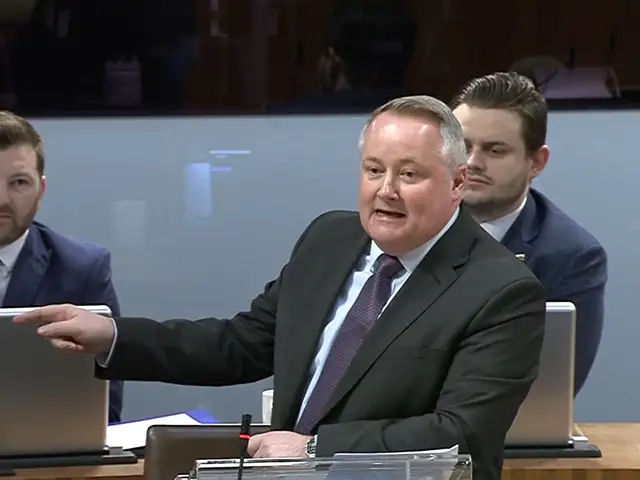
WELSH CONSERVATIVE leader Darren Millar MS has dismissed renewed Labour calls for further Senedd powers, warning that the Welsh Government should “stop making excuses” and focus instead on tackling crises in health, education and the economy.
His comments follow an extraordinary intervention earlier this week by 11 Labour backbench MSs, who wrote to Prime Minister Sir Keir Starmer on 3 December accusing his government of “rolling back” devolution. The signatories — including former ministers Mick Antoniw, Lesley Griffiths and Lee Waters — said they were “increasingly concerned” by the lack of progress on key commitments such as reforming the Barnett formula, devolving rail infrastructure, policing and justice, and transferring the Crown Estate to Wales.
The letter singled out the UK Government’s new “Pride in Place” funding scheme — which sends regeneration money for town-centre improvements directly to Welsh councils — as a “constitutional outrage,” arguing that it sidesteps devolved powers through the UK Internal Market Act 2020. Although First Minister Eluned Morgan has raised the issue with Starmer, no Welsh ministers added their names to the letter, laying bare internal tensions as Labour falls back in polls ahead of the 2026 Senedd election.
Opposition parties seized on the dispute. Plaid Cymru’s Mabon ap Gwynfor MS said it showed Labour “falling apart,” while Welsh Liberal Democrat leader Jane Dodds criticised Westminster’s “deep lack of understanding” of the devolution settlement.
At a Council of the Nations and Regions summit on Thursday, Chief Secretary to the Treasury Darren Jones — standing in for Starmer — defended the UK Government’s record, saying Labour in Westminster had been “delivering at pace” in partnership with Wales. The 26 November Budget provided £508 million in additional resource and capital funding for Wales over the Spending Review period, alongside commitments to Port Talbot brownfield remediation, a South Wales semiconductor cluster, nuclear investment at Wylfa and a £547 million Local Growth Fund devolved to the Welsh Government. Welsh ministers welcomed many of these as having “generational” value, though the Labour MSs’ letter said they fell short of promised constitutional reform.
The Welsh Conservatives have consistently opposed further Senedd powers, arguing that Cardiff Bay already holds significant authority under the existing settlement established in 1997 and expanded in 2011, 2014 and 2017. Millar, who became Welsh Conservative leader in 2024, has previously ruled out abolishing the Senedd as unrealistic, while urging ministers to “transform people’s lives with devolution” by using existing powers more effectively.
Pointing to record pressures in devolved services, Millar said Labour was fixated on constitutional arguments while outcomes worsen. NHS waiting lists in Wales stood at 789,929 pathways by mid-2025 — nearly one in four residents — with first outpatient waits in parts of Rhondda Cynon Taf stretching from 28 to 68 weeks or more. Public satisfaction with the Welsh NHS averaged 5.1 out of 10 in the year to March 2025, down from 6.3 in 2021–22. Education attendance figures for 2023–24 showed slow post-pandemic recovery, while youth employment (16–24) fell to 52.5% in the year to March 2025. Wales’ unemployment rate rose to 4.1% in the year to June 2025, slightly above the UK’s 4.0%, with areas such as Swansea reaching 8.2%. Economic inactivity among 16–64-year-olds remained high at 24.1%.
Darren Millar MS said: “One Labour Government damaging Wales was bad enough — now we have two, and things are twice as bad.
After two damaging budgets, Welsh Government ministers are focused on infighting about Senedd powers instead of fixing the everyday problems families are facing.
The Senedd doesn’t need more powers. What we need is a government that accepts responsibility, stops making excuses, and uses the extensive powers already available to get to grips with the crisis in our NHS, improve standards in our schools, and tackle Wales’ spiralling unemployment.
Only a Welsh Conservative Government will fix Wales.”
The dispute reflects wider public debate on whether devolution is delivering results. Polling suggests consistent support for having a Senedd, but growing frustration over service performance. With the 2026 election approaching and Reform UK and Plaid Cymru gaining ground, Labour’s internal split over devolution exposes fresh vulnerabilities as the party tries to navigate its relationship with Westminster.
-

 Crime3 days ago
Crime3 days agoDefendant denies using Sudocrem-covered finger to assault two-month-old baby
-
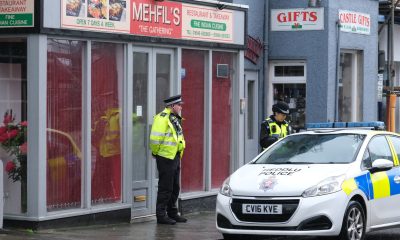
 Crime2 days ago
Crime2 days agoPembroke rape investigation dropped – one suspect now facing deportation
-

 News2 days ago
News2 days agoBaby C trial: Mother breaks down in tears in the witness box
-

 Crime15 hours ago
Crime15 hours agoProsecution delivers powerful closing speech in Christopher Phillips trial
-

 Crime3 days ago
Crime3 days agoLifeboat crew member forced to stand down after being assaulted at Milford pub
-

 Crime4 days ago
Crime4 days agoDefendant denies causing injuries to two-month-old baby
-
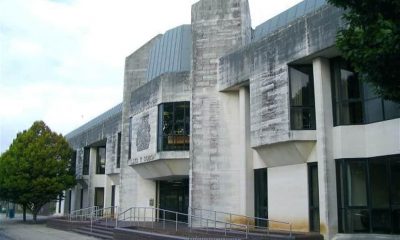
 Crime2 days ago
Crime2 days agoMother admits “terrible idea” to let new partner change her baby’s nappies alone
-

 Crime4 days ago
Crime4 days agoPembrokeshire haven master admits endangering life after speedboat collision







